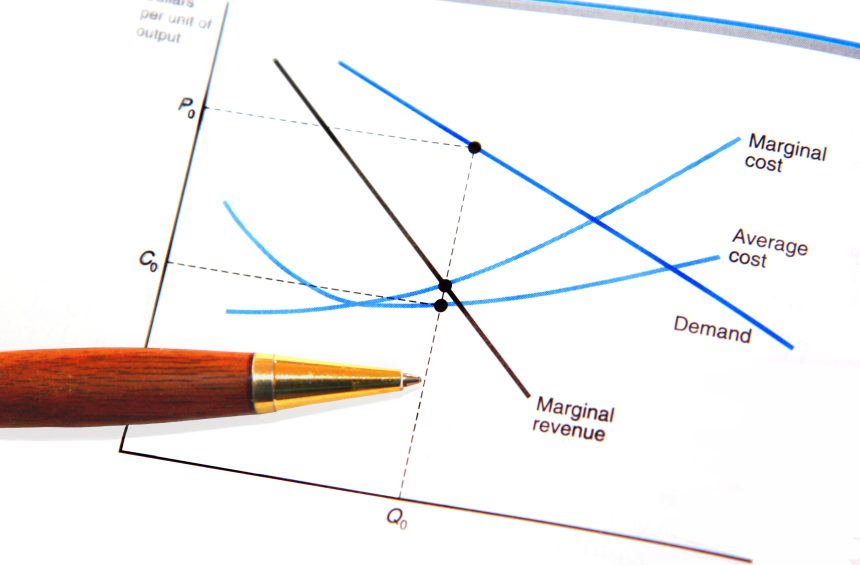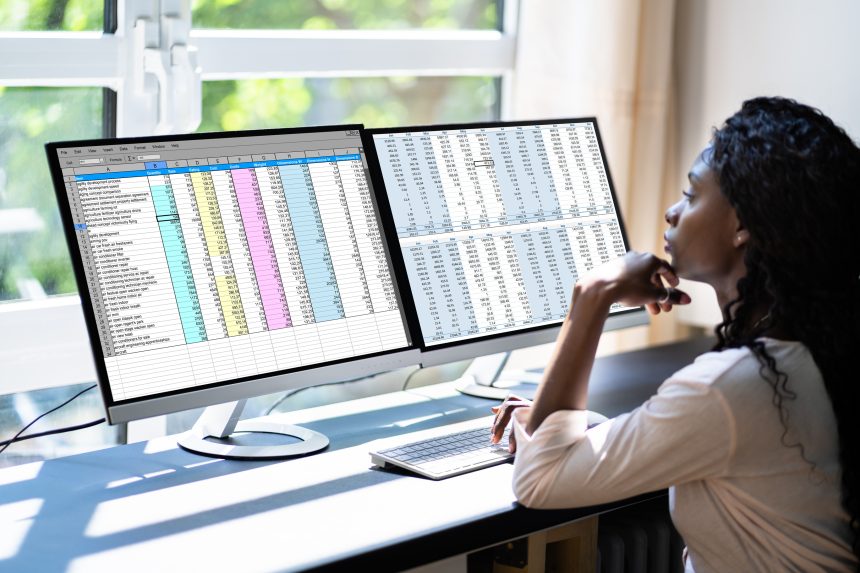Contents:
- What content is covered in A Level Economics?
- How is A Level Economics assessed?
- Is A Level Economics hard?
- Do you need GCSE Economics to take it at A Level?
- What grades do you need to do A Level Economics?
- What skills will you develop when studying A Level Economics?
- Where can A Level Economics lead you?
- What subjects go well with A Level Economics?
- Do you need to study A Level Maths alongside A Level Economics?
What content is covered in A Level Economics?
Economics is the study of the production, distribution, and consumption of goods and services. A Level Economics covers both microeconomics and macroeconomics, providing students with a comprehensive understanding of economic principles and their practical applications.
In microeconomics, you will study how individual choices made by consumers, businesses, and industries impact resource allocation within specific markets. You will examine factors such as pricing, supply and demand, production, and how individual behaviours influence the economy. Microeconomics also explores issues like market failure and the role of government intervention.
Macroeconomics examines the broader economic landscape at a national and global level. You will explore the intricacies of national income determination and measurement, including concepts like Gross Domestic Product (GDP), inflation, unemployment, and the balance of payments. You will engage with theories of economic growth and the challenges posed by globalisation, international trade, and exchange rate mechanisms. Macroeconomics also encompasses the study of fiscal and monetary policies. You will investigate how governments and central banks use these tools to influence economic conditions and stabilise economies.

Across the A Level Economics curriculum, you will be encouraged to apply theoretical knowledge to real-world scenarios. This involves critically analysing economic data, evaluating the impact of policies, and exploring the ethical implications of various economic decisions.
How is A Level Economics assessed?
The exact structure of your Economics A Level course will depend on your exam board. Generally, it is entirely exam-based with 3× written exams at the end of the course:
- 1× paper assessing microeconomic issues
- 1× paper assessing macroeconomic issues
- 1× synoptic paper testing various aspects of the syllabus
The exam papers may consist of multiple choice questions, data response questions, longer essay questions, and case studies.
Is A Level Economics hard?
If you study A Level economics, you will learn fundamental economic concepts in Year 12 followed by a more in-depth exploration in Year 13, where you will practically apply your knowledge to diverse scenarios.
While the content itself isn’t too complex, many students find effectively applying this knowledge to exam questions and essays to be the most challenging part of the course. Understanding what examiners are looking for and mastering exam technique requires a lot of past paper practice.
In 2023, 98% of students passed A Level Economics, with 29% achieving a grade A or above. With hardwork and enthusiasm, success in A Level Economics is well within your reach!

Do you need GCSE Economics to take it at A Level?
Typically, you don’t need to have studied GCSE Economics to take A Level Economics.
In 2023, almost 40,000 students took A Level Economics. In the same year, only 7,500 students took the GCSE. Therefore, a lot of students start A Level Economics without prior exposure to the subject.
However, having a background in GCSE Economics might provide a helpful foundation and familiarity with some basic economic concepts.
What grades do you need to do A Level Economics?
Generally, for most A Level courses, including A Level Economics, you need a minimum of five GCSEs at grades 9-4, including english and maths.
Some sixth forms or colleges may ask for higher grades in GCSE Maths or related subjects for studying A Level Economics due to its analytical and mathematical components. It’s always best to check with your chosen institution for their specific entry requirements for A Level Economics.

What skills will you develop when studying A Level Economics?
Studying A Level Economics can help you develop a range of valuable skills, including:
- Analytical skills – You will learn how to analyse economic data, trends, and theories.
- Problem-solving – You will learn to break down complex economic issues, apply theories to real-world scenarios, and propose solutions through critical thinking and structured argumentation.
- Critical thinking – You will develop the capacity to evaluate theories, policies, and arguments critically.
- Communication – Articulating economic concepts effectively in essays and reports is integral to A Level Economics, improving your written communication skills.
- Decision-making – Economics teaches decision-making frameworks based on cost-benefit analysis.
- Debate and persuasion – You will engage in discussions and debates about economic theories and policies, sharpening your persuasive argument skills.
Top tips for studying A Level Economics
- Understand core concepts – Start by mastering basic concepts like supply and demand, market structures, fiscal and monetary policies, etc. These concepts serve as building blocks for more complex economic theories.
- Apply your knowledge – Don’t just memorise theories; apply them to real-world situations. Analyse how economic concepts affect markets, industries, or government policies. Practical application solidifies understanding.
- Active engagement – Actively participate in class discussions, ask questions, and engage in debates. Explaining concepts to others or defending your viewpoint enhances your understanding and clarifies misconceptions.
- Practise past papers – Solve past exam papers to familiarise yourself with the exam format, question styles, and time constraints. You can find lots of past papers, as well as past paper questions organised by topic, on Physics & Maths Tutor.
- Stay updated – Follow economic news and analyse current events through an economic lens. This practice helps in applying theories to real-life scenarios and provides relevant examples to use in your essays.
Where can A Level Economics lead you?
As well as leading to Economics-based degrees at university, A Level Economics provides a solid foundation for pursuing related degrees, including:
- Finance and Accounting
- Business Management
- International Relations
- Government and Politics
- Sociology
- Geography
- Data Science
- Statistics
- Environmental Studies
- Sustainable Development

Beyond university, A Level Economics can lead to careers such as:
- Economist – Analysing economic data, conducting research, and providing insights on economic trends for organisations, governments, or research institutes.
- Financial Analyst – Assessing financial data, evaluating investment opportunities, and providing recommendations based on economic factors.
- Investment Banker – Working in mergers and acquisitions, financial advisory services, or trading.
- Management Consultant – Using economic theories to drive organisational decisions.
- Policy Analyst – Evaluating and formulating policies for governments, NGOs, or international organisations based on economic principles and data.
- Market Research Analyst – Studying consumer behaviour, market trends, and economic indicators to guide marketing strategies and product development.
- Data Analyst – Analysing and interpreting large datasets to derive actionable insights for businesses or research.
- Financial Planner – Using economic knowledge to assist individuals or businesses in financial planning, investment, and wealth management.

- Public Sector Roles – Working in governmental departments related to finance, treasury, budget analysis, or economic development.
- Business Development Manager – Identifying growth opportunities, market trends, and economic factors influencing business expansion strategies.
- Environmental Economist – Assessing the economic impact of environmental policies, sustainability initiatives, or climate change interventions.
- International Trade Specialist – Analysing global trade patterns, tariffs, and policies to facilitate international business strategies.
What subjects go well with A Level Economics?
A Level Economics is commonly combined with maths and physics. The logical and problem-solving aspects of maths align with the quantitative and analytical demands of economics. Physics, with its problem-solving approach, reinforces critical thinking and analytical abilities. It also contributes to a robust understanding of scientific principles, which can be advantageous when studying economic phenomena with scientific implications, such as environmental economics.
A Level Economics is often taken alongside A Level Business. Business studies offer insights into organisational structures, market dynamics, and management strategies, complementing the real-world application of economic theories.
Do you need to study A Level Maths alongside A Level Economics?
While A Level Maths is not a strict requirement for studying A Level Economics, having a strong mathematical foundation can significantly benefit students studying Economics.
Maths provides crucial skills like statistical analysis, algebra, and calculus, which are often used in economic models and data interpretation. Studying maths alongside A Level Economics can enhance your ability to handle quantitative aspects of the subject, making it easier to grasp certain economic theories and their applications.
A Level Maths is typically a prerequisite for students interested in studying Economics or related degrees at university, due to the quantitative nature of the courses.
If you intend to study A Level Economics without A Level Maths, you might want to explore a Free Standing Maths Qualification (FSMQ) to ensure you meet the necessary mathematical expectations for your course. There are also specialised resources designed for Economics students who aren’t taking A Level Maths, like this ‘Essential Maths Skills for AS/A Level Economics’ textbook.

Comments